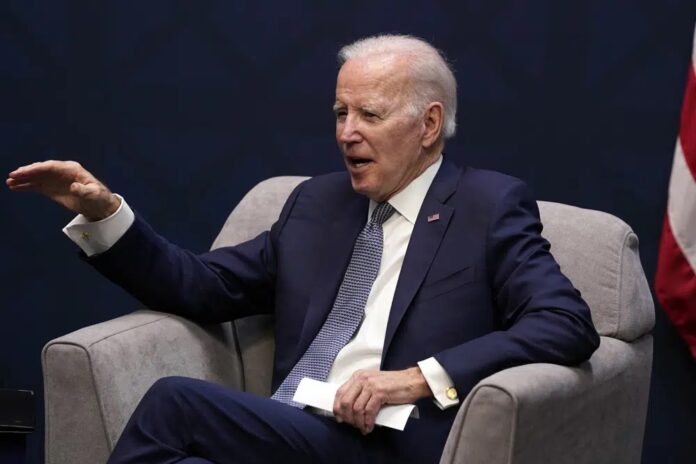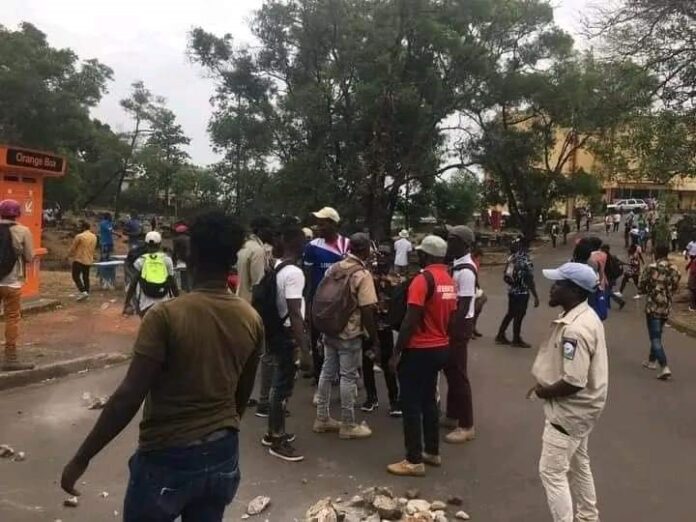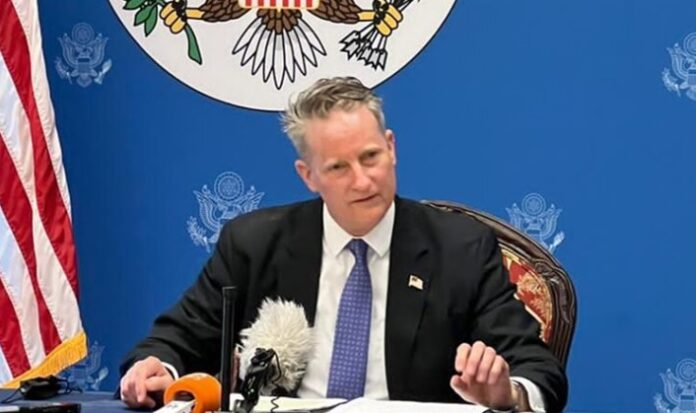SAN DIEGO (AP) — President Joe Biden is expected to sign an executive order on Tuesday aiming to increase the number of background checks to buy guns, promote better and more secure firearms storage and ensure U.S. law enforcement agencies are getting the most out of a bipartisan gun control law enacted last summer.
The Democratic president plans to address his latest efforts to curb gun violence in a speech from Monterey Park, California. In January, a gunman stormed a dance hall in the community near Los Angeles and shot 20 people, killing 11, following a Lunar New Year celebration. He’s also going to meet with families of the victims and first responders from that day.
Biden’s rhetoric has only grown stronger around guns — he routinely calls for banning so-called assault weapons in his speeches — and Democrats didn’t push such a vocal gun-control platform even during the Obama administration, when Biden was vice president. But Biden has been emboldened by the midterms after his regular talk of gun control didn’t result in massive losses, and he’s expected to continue to push for strong changes as he inches toward a 2024 run, his aides say.
Biden invited Brandon Tsay, the 26-year-old who wrestled the semi-automatic pistol away from the gunman in Monterey Park, to his State of the Union address and praised the young man’s heroism.
“He saved lives. It’s time we do the same as well,” Biden said in his speech to Congress. “Ban assault weapons once and for all.”
But the president’s power is limited to go beyond bipartisan legislation passed by Congress last summer, the most sweeping gun violence bill in decades. It followed the killings last year of 10 shoppers at a Buffalo, New York, grocery store and 19 students and two teachers at a Uvalde, Texas, elementary school.
“Too many lives have been taken by gun violence,” White House press secretary Karine Jean-Pierre said Monday. “But he believes we need to do more. You’ll hear him call on Congress to take action and not to stop … that we need to continue.”
Biden will mandate that his Cabinet work on a plan to better structure the government to support communities suffering from gun violence. The plan will call on Attorney General Merrick Garland to shore up the rules for federally licensed gun dealers so they know they are required to do background checks as part of the license.
Biden is also mandating better reporting of ballistics data from federal law enforcement for a clearinghouse that allows federal, state and local law enforcement to match shell casings to guns. But local and state law enforcement agencies are not required to report ballistics data, and many do not, making the clearinghouse less effective.
And the president is going to ask the Federal Trade Commission to issue a public report analyzing how gun manufacturers market to minors and use military images to market to the general public.
The bill passed last year, known as the Safer Communities Act, is viewed by gun control advocates as a good start but one that doesn’t go far enough. After the law was signed, there were 11 other mass shootings, according to a database of mass killings since 2006 maintained by The Associated Press, USA Today and Northeastern University. Those killings don’t include shootings in which fewer than four people were killed — and gun violence is also rising nationwide.
“President Biden’s executive order today is a home run for public safety,” said John Feinblatt, president of Everytown for Gun Safety. “This is the latest example of President Biden’s leadership on gun safety, and we’re proud to stand with him as he takes robust action to help close the gun-seller loophole — which will significantly expand background checks on gun sales, keep weapons out of the hands of dangerous people and save lives.”
Biden will also direct his Cabinet to make sure law enforcement agencies understand the benefits of the new law, particularly around red-flag laws, also known as extreme risk protection orders, which are intended to temporarily remove guns from people with potentially violent behavior and prevent them from hurting themselves or others.
Last month, the Justice Department sent out more than $200 million to help states and the District of Columbia administer red-flag laws and other crisis-intervention programs.







